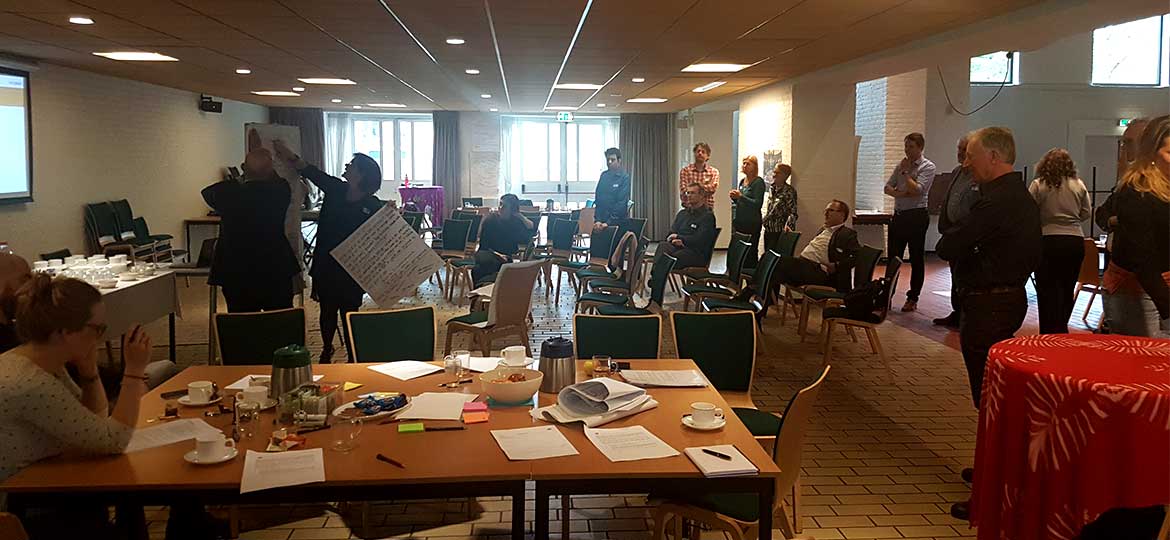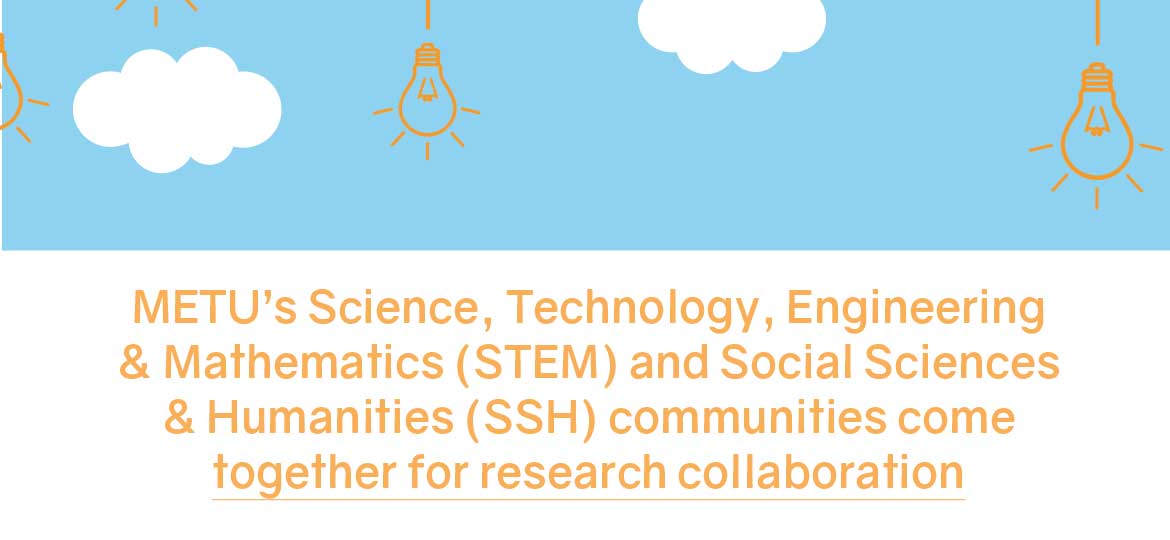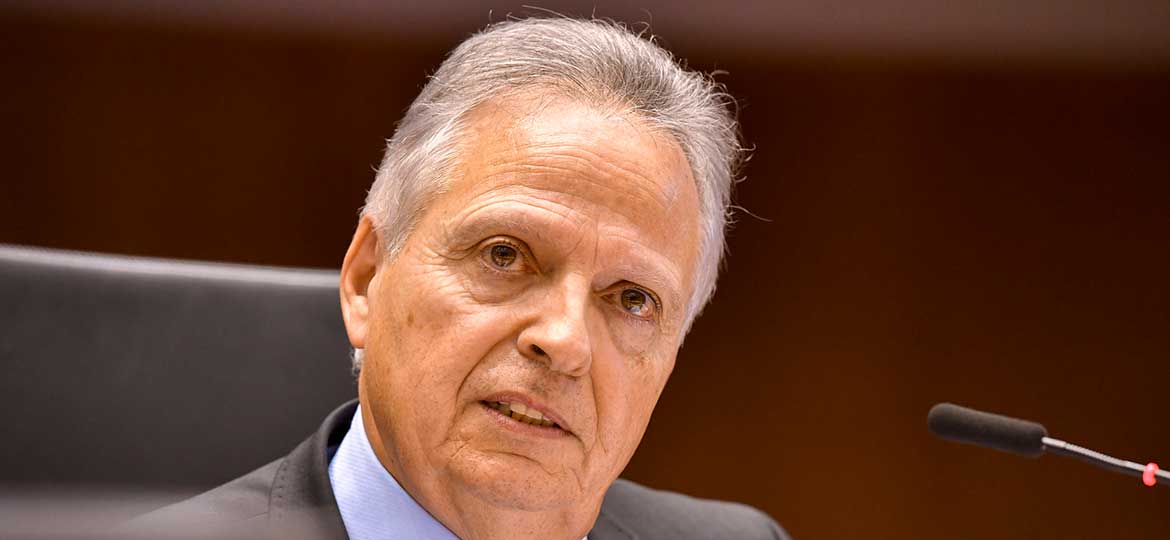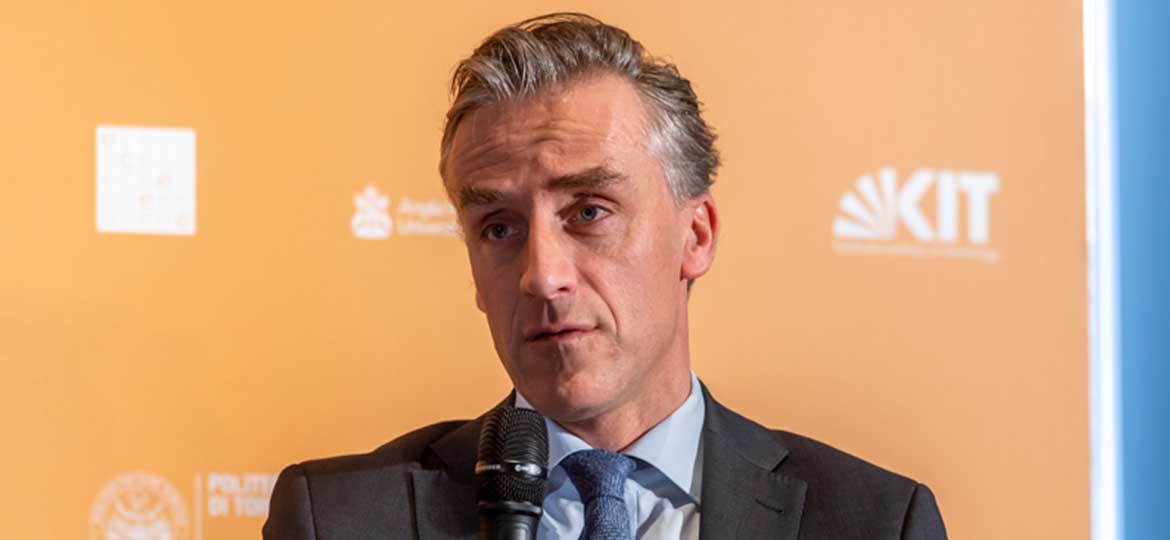On the 24th of April the day was finally there: the SHAPE ENERGY workshop in Utrecht Overvecht organized by the municipality of Utrecht, the tenants association of TaRuFa and DuneWorks. This workshop would tackle one of the big challenges Utrecht faces: making private rented properties more sustainable. After months of hard work, with a lot of talks with all stakeholders to ensure their engagement, we were all very excited to start the day. Just a few days before the workshop however disaster struck. One of our stakeholders, the landlord, notified us they would not be present, because they felt they were not ready to start discussing the renovation of their properties.
The tenants were of course very disappointed, but fortunately they were still motivated. The absence of the landlord was actually seen as an illustration of the long road we have ahead of us. We decided to write a story based on the case of the landlord, and tell this story at the workshop to ensure all voices would be present. Fortunately the day went very well and everyone was, thanks to the chosen storytelling methodology, able to express their view. Each story had as much value as the other, evidenced by the fact that the story of the landlord was often referred to during discussions. Participants all felt heard and taken seriously, with active participation and a lot of input during discussions.
One consequence of the landlord voice being absent at the table, was a lot of constructive dialogue and consensus among the other participants, where otherwise the table moderators might have had a difficult time avoiding a tense discussion between the landlord and the other voices. Participants agreed that there are many different interests involved that are hard to align.
And in spite of the absence of the landlord, the voices present were very inclusive and still took the business cases of most landlords into account in their solutions. In addition, the different voices provided interesting solutions based on their own perspective and role. For example, government officials suggested better rules and regulations to be able to legally force landlords to take actions. Others suggested a ‘coalition of the willing’; to join forces between parties that are willing to make privately owned rented apartments more sustainable. There were also participants that suggested not to wait for collaboration, but to individually take action. “Don’t underestimate the power of the tenant!” they claimed.
At the end of the day, the participants were very positive about the outcomes and the organisation of the workshop. They were happy the difficult topic was finally discussed and that so many different stakeholders were present. They thought the workshop was beneficial to themselves and that it encouraged interdisciplinary working. Many hoped that this would be the start of something new: new collaborations and better research. Despite the absence of the landlord, the workshop had been fruitful. In hindsight, their physical absence was perhaps a blessing in disguise: people were in a constructive mood. There was a willingness to cooperate that may not have been felt so strongly if the landlord had decided to come?
By Mariska de Zeeuw, junior researcher, DuneWorks












